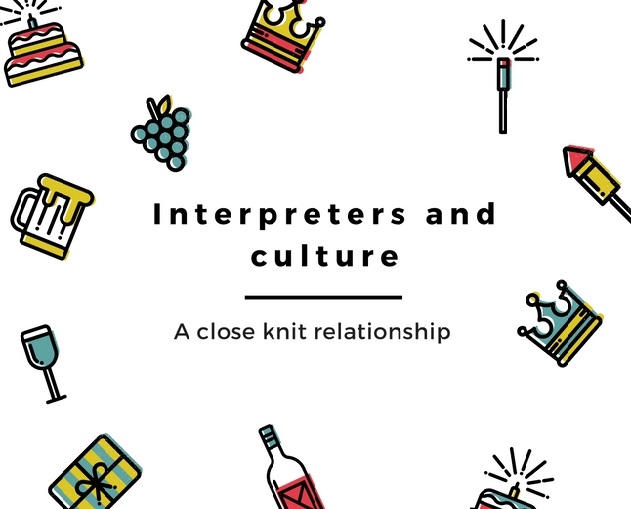As any language professional knows, language is inextricably linked to culture. An interpreter needs to have knowledge and understanding of both to communicate across cultures. This includes knowledge of norms and idioms that can often be deeply culturally bound. For example if an Australian says, “no worries, it’s a piece of cake”, they are not offering to make you a cake, they are actually saying that something is easy. Or if someone says you are “on the ball”, they don’t mean literally, they mean that you are energetic, organised, attentive and knowledgeable. How would you render that in another language? One of the greatest challenges for interpreters is conveying terms and expressions that are so culturally bound that they don’t exist in the other language. It is in such cases that
“interpreters do far more than bridge language gaps. They enable people from extremely different cultures to understand each other” (Found in Translation p.20).
So how do interpreters navigate culture and cultural differences?Let’s first consider how culture can be defined. According to Banks, J.A., Banks, & McGee, C. A. (1989), most social scientists today view culture as: “consisting primarily of the symbolic, ideational, and intangible aspects of human societies”; or Damen, L. (1987) defines culture as: “learned and shared human patterns or models for living; day- to-day living patterns”. Therefore much of the skill required to do so comes with time and experience. Interpreters need to gain sufficient knowledge and awareness of values, attitudes and assumptions that inform both cultures they work with in order to successfully navigate the cultural divide.
Exposure to the language in a variety of situations is a good place to start.
Having the opportunity to work in another country can provide invaluable insight into cultural norms and provide exposure to terminology that may prove to be challenging in interpreting. For example, I recall a funny situation from a trip to France as a teenager. I discovered that France doesn’t have EFTPOS so you can’t get cash out at the supermarket for example. I clearly remember getting a very strange look at the check-out when I asked if I could get extra cash with my purchase! On the other hand, there is no problem with splitting bills in France, each person just tells the waitress how much they want to put on their card and it is processed. Whereas in Australia a large majority of restaurants and cafes proudly display “No split bills” signs.
Interpreters need to be familiar with both business and social settings.
If you’re interested in communication differences between France and Australia, you can read my blog post here about how conversations are constructed and differences in expression. In terms of social situations, a good starting point is to know what topics of conversation are taboo in the other culture. This is especially true of France given that the French love conversation and debate. Be careful! Only give opinions on subjects you are knowledgeable about, otherwise you may be expected to defend your views on a topic! Good conversation topics in France are food, art and philosophy while things to avoid – that are seen as taboo in French conversation are money, religion and asking “what do you do for work”? when you first meet someone.
There are many academic articles that refer to the role of an interpreter as a ‘Cultural mediator’
These articles acknowledge that interpreters need not only to master language techniques, but also to possess in-depth knowledge of different cultural backgrounds. This is why not everyone who speaks two languages can be considered as interpreter. It is the skills and knowledge of the interpreter that come together to play a crucial role in ensuring that what is said sounds natural and conveys the original meaning in the other language. In doing so they strengthen sensitivity to cultural differences, effectively reduce misunderstanding and successfully achieve intercultural communication.
If you’re interested in French culture in Australia, then stop by the SBS Cultural Atlas page.





 English
English